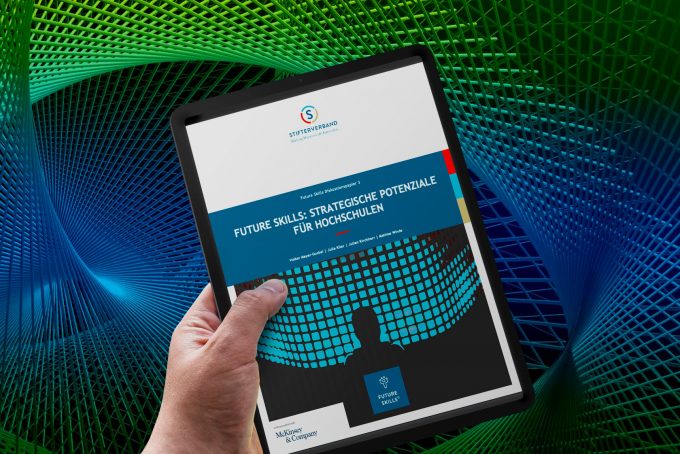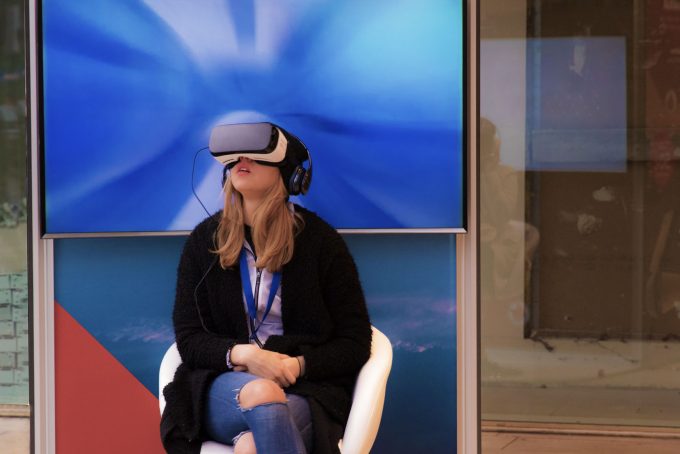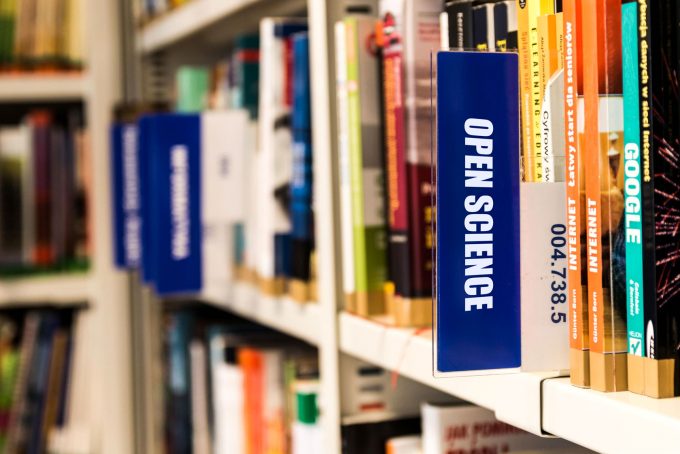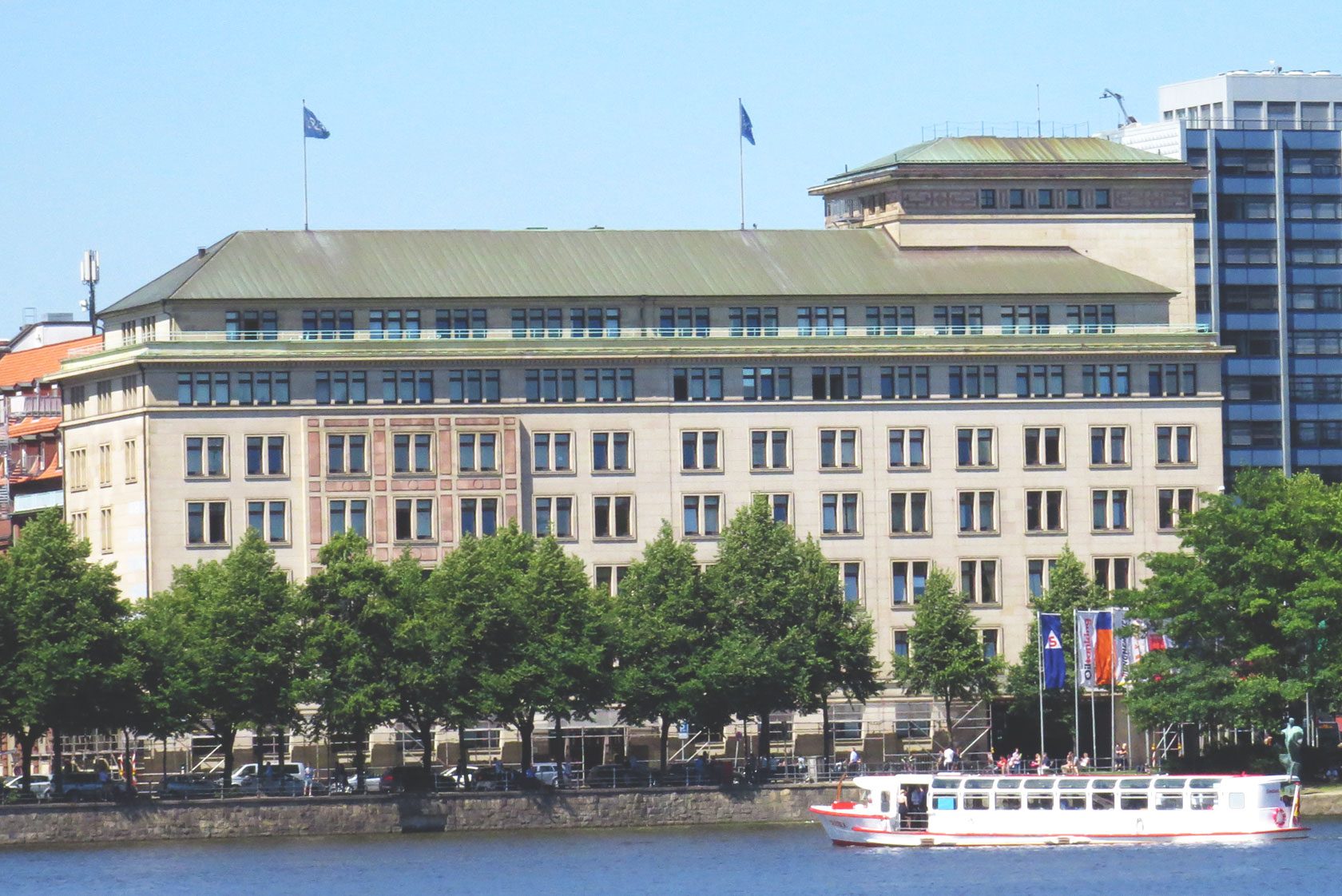
Innovation Workshop: How Libraries can Actively Shape Digitalization
The visibility of libraries in the age of networked working, new genuinely digital services and the perspectives and opportunities of openness for libraries were among the topics: At the innovation workshop "Digitalization – How libraries can actively shape being digital", participants were invited to innovate and developed numerous innovative ideas.
by Birgit Fingerle
The innovation workshop “Digitalization – How libraries can actively shape being digital” (all links and presentations are in German language) organized by the ZBW with the support of OCLC took place on 09.04.2019 at the ZBW Hamburg.
Skip to PDF contentThe approximately 80 participants were welcomed by ZBW Director Prof Dr Klaus Tochtermann and Dr Sebastian Müller, Director Sales DACH at OCLC, who agreed that this day should be dedicated to the creation of new ideas, detached from the barriers and obstacles of everyday life. Afterwards there were three parallel workshop sessions with inspiring lectures as an introduction, lively exchanges and new ideas were developed using different creativity techniques.
How can the library remain visible in the digital age?
Session 1 was entitled “How can the visibility of the individual library be achieved in the age of networked working and what additional uses do electronic reading rooms offer?”
In the first speech, Prof Dr Simone Fühles-Ubach and Prof Dr Ivonne Preusser (both from the TH Köln – University of Applied Sciences) asked the question: “How do we reach students and scientists?” (PDF). Elisabeth Gasser and Marita Kieser (both Library of Economics, University of Zurich) then reported on how they refer to digital services in their library “With a print campaign in analogue space” (PDF). The third talk was dedicated to electronic reading rooms. Rolf Rasche (ImageWare Components GmbH) asked: “What additional uses do they offer?” (PDF).
In the subsequent workshop phase dedicated to developing innovative ideas, 6 small groups were formed which agreed first of all on the target groups of libraries and their diverse needs and, building on this, generated numerous ideas. The ideas included for instance using pictograms for visibility (instead of a lot of text) as well as ideas for designing electronic reading places.
With the help of the persona “Oskar” developed in the workshop, for example the “LibMatch” service was also conceived: a chatbot matches profiles of librarians with the user. It helps to reduce inhibitions when using the library, because it enables the user to get to know the library for the first time. This results in “Oskar” and “his” librarian meeting on site in the library. Now he has his “partner” to support him in using the library services. For the implementation of this idea, partners within the respective university could be sought: People from computer science for programming, from business administration for marketing and so on. In this way, the library becomes more visible even during the implementation of the idea within the university.
What genuinely digital services will there be?
The question “What new genuinely digital services will there be?” was the central question in session 2. Since the development of new services focuses on the wishes and requirements of users, Nicole Clasen (ZBW) addressed ways of getting to know them: “Now you’re getting to know me – user survey with the ZBW’s user experience toolkit” (PDF). Creativity and fun are the first priority of these methods.
In the second lecture of the session, Mathis Fräßdorf (WZB Berlin Social Science Center) presented “The services data acquisition and data publication” (PDF) as new digital services of the WZB. Prof Dr Ragna Seidler-de Alwis and Prof Dr Simone Fühles-Ubach (both from the TH Köln – University of Applied Sciences) dedicated their presentation to the corresponding job description: “The data librarian as a response to changes in scientific libraries” (PDF) and presented the corresponding new study course at the TH Köln – University of Applied Sciences.
In the creative phase of the session, three of the numerous ideas generated were worked out in detail:
- Beyond discovery: With the desire to expand the Discovery system of the library into a one-stop-shop, numerous possibilities were devised to bring together the necessary steps for efficient information procurement at a single point for the users.
- Analog rooms – digital services: To unite these two seemingly contradictory things, the participants took on this goal with a lot of creativity, as the photo shows.
- Publication support in Word – digital – simply convenient: Under this motto, the participants dreamed of an innovative plugin in Word that would unite all possible existing and not yet existing features. The publication process with all the trimmings – from text input to publication of the work – is to be automated, including research processes and, for example, plagiarism checking.
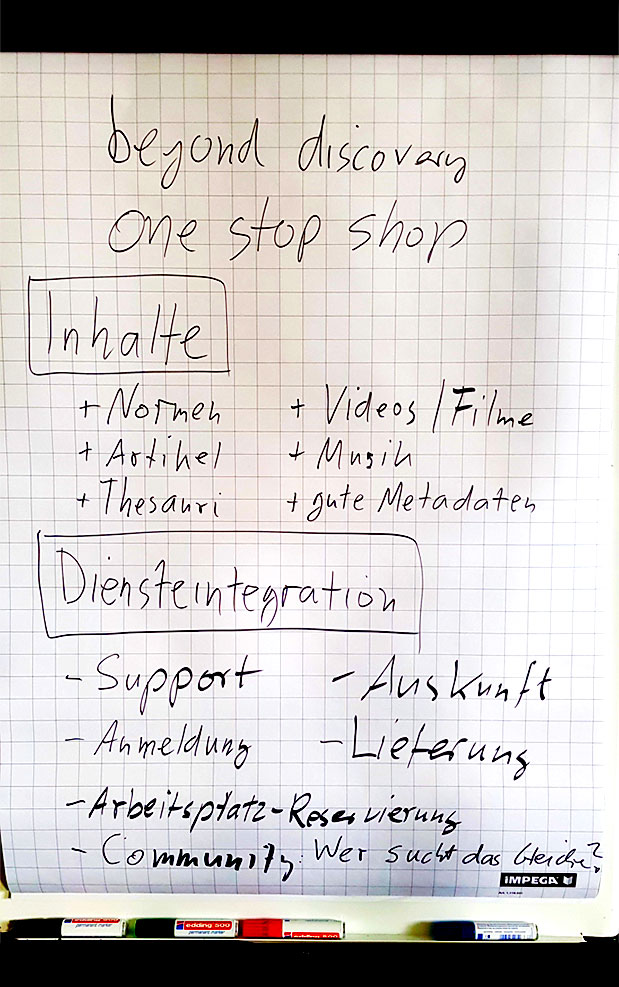
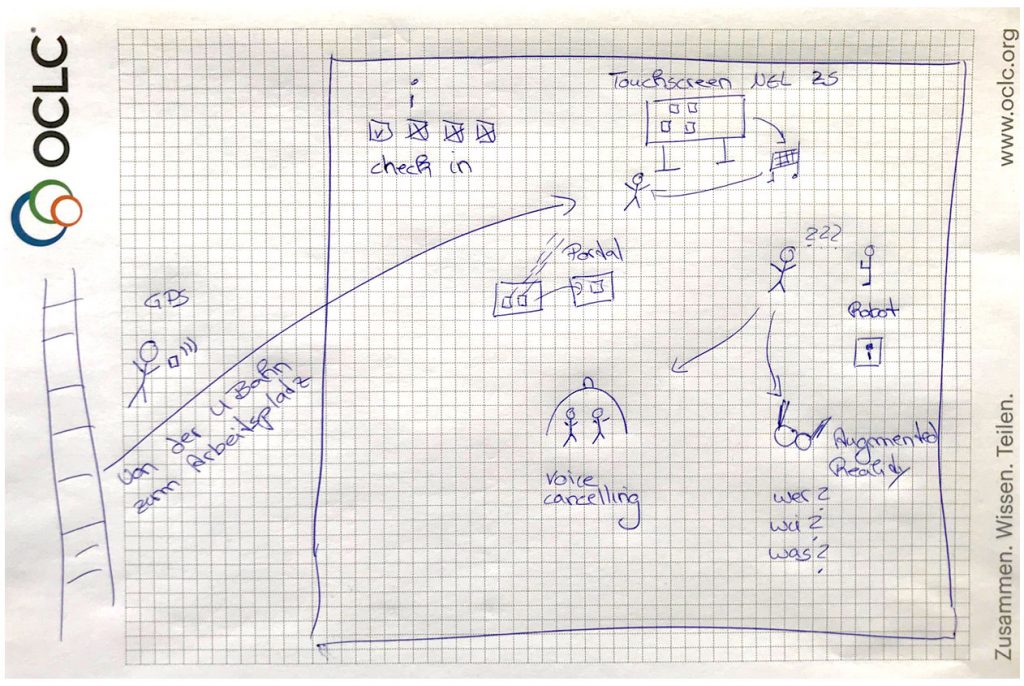
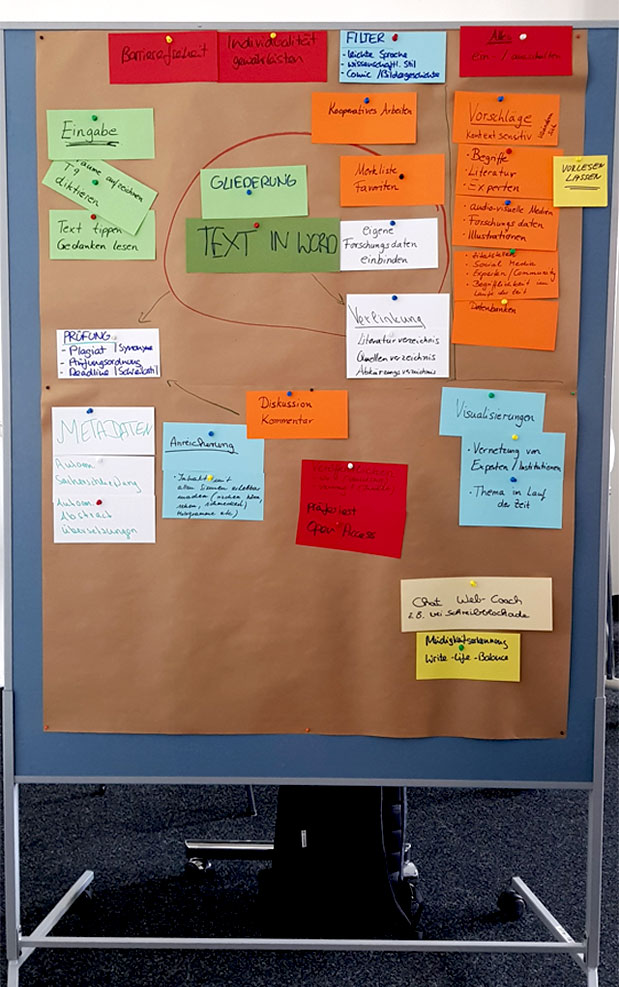
How can libraries benefit from openness – and become more open themselves?
Session 3 focused on “What current perspectives and opportunities does Openness offer libraries?”.
In her lecture “Open Access for Everyone: Innovative Approaches to Publication Management at the KIT Library” (PDF), Regine Tobias reported on how the KIT Library sees open access as an opportunity for itself. Michael Luetgen (from the company Zeutschel) talked about experiences with the use of open source in the lecture “Digitisation support with Open Source at the example of Kitodo – operating models” (PDF). Dr Annette Dortmund (OCLC) presented the preliminary results of an international survey on “Open Content in Library Practice” (PDF). In the fourth and last lecture of the session, Dr Jens Mittelbach (Saxon State and University Library Dresden) dealt with “Openness as a strategic and operative field of action for libraries” (PDF).
In the round of discussions within the session, aspects and perspectives of openness for libraries were discussed. Among other things, it became clear that libraries as actors in the field of openness must advance by developing their own openness. For this they would have to develop themselves into labs and invest in their own personnel and organisational development.
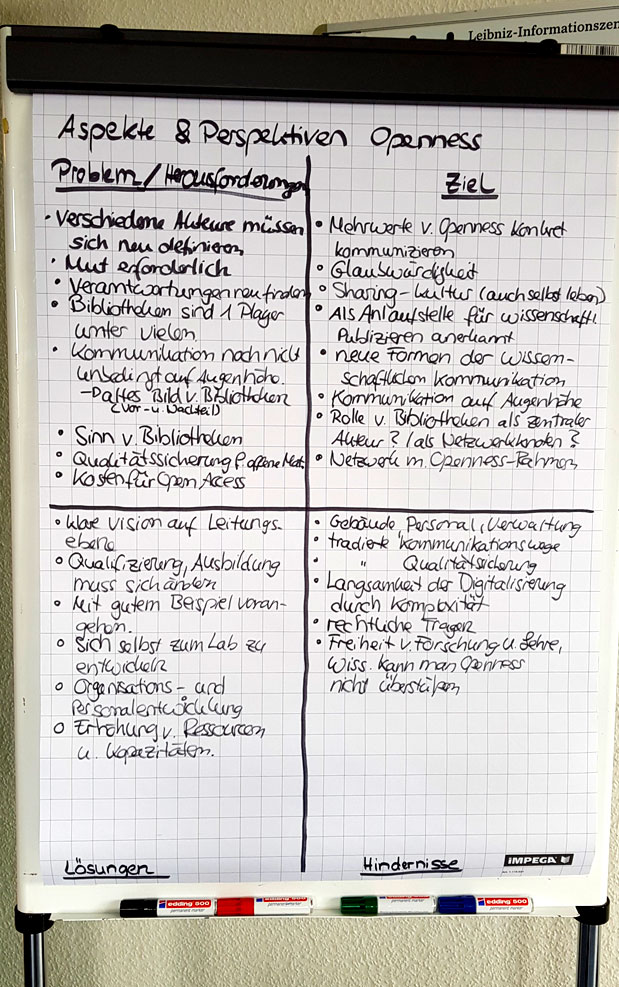
Subsequently, numerous ideas were generated in a creative round as to how libraries could make even greater use of the opportunities offered by openness and how they themselves could become even more open. The participants of the session rated as most important ideas around
- the creation of spaces that promote openness,
- ideas around networking aspects of libraries,
- and especially ideas that focus on the internal culture.
The development of internal culture was seen as a particularly important starting point for promoting openness in libraries and exploiting the opportunities offered by openness.
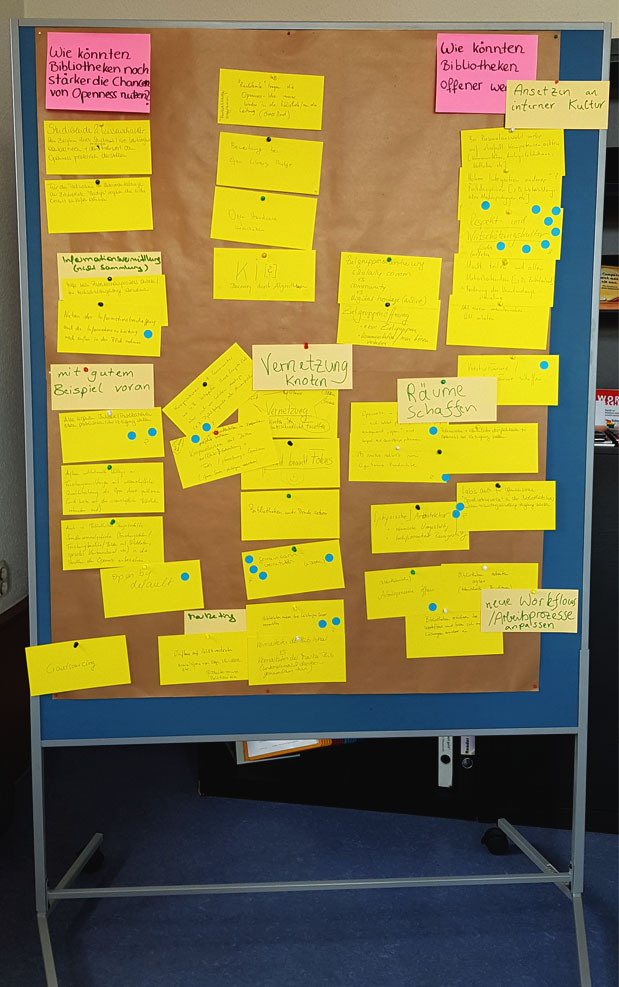
Spinning the ideas further and taking the innovative spirit with you
At the end of the workshop day, a joint presentation of the results of all three sessions took place in front of many satisfied faces. There was a strong interest felt from many sides to continue working on the generated ideas and to strive for an implementation. In their closing remarks, Prof Dr Klaus Tochtermann (ZBW) and Dr Sebastian Müller (OCLC) announced plans for a continuation of the format in order to foster its further development. The workshop results will also be presented at the next OCLC Library Leaders’ Day.
In their closing words, both pointed out that many of the solutions presented already exist as individual solutions. The interesting ideas developed could now be meaningfully integrated into a whole. Prof Dr Klaus Tochtermann said that the implementation of these ideas would be incredibly complex and mentioned another benefit of the workshop: Keeping the innovative thinking from the workshop day with them and transferring it to their libraries.
View Comments
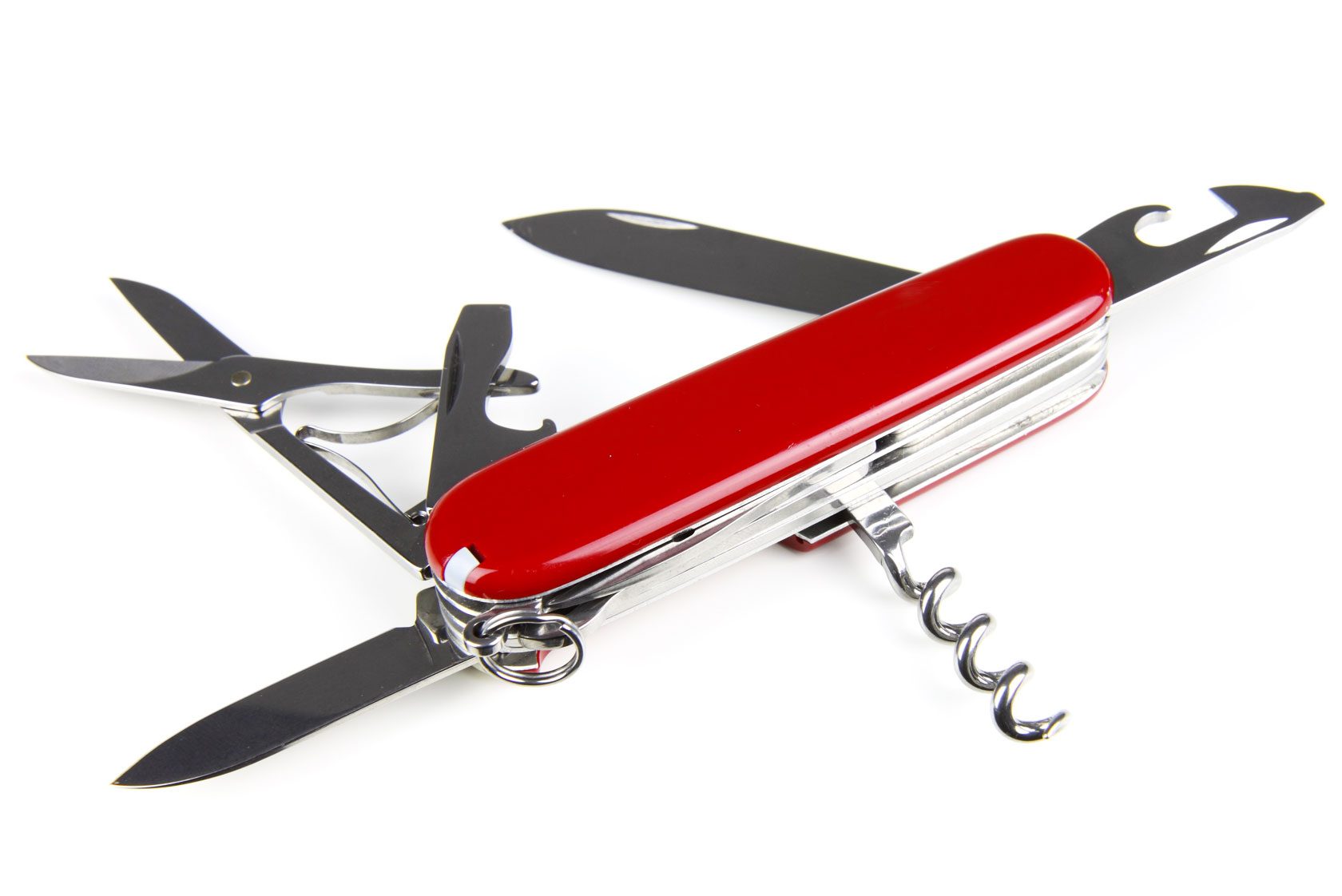
Open Educational Resources: How the EconBiz Academic Career Kit Trains Open Science Skills
How could libraries help researchers in training open science and other research...

